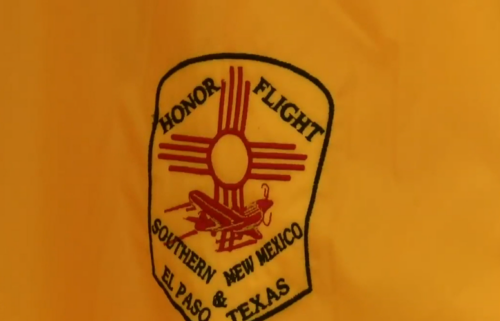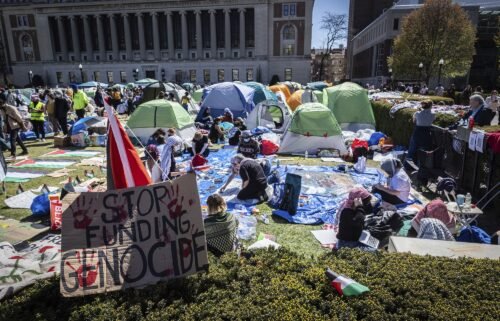Former Japanese Prime Minister Shinzo Abe in critical condition following shooting
By Helen Regan, Junko Ogura and Emiko Jozuka, CNN
Former Japanese Prime Minister Shinzo Abe is in critical condition and fighting for his life after being shot in the street in broad daylight while making a campaign speech in the central city of Nara, in an attack that has shocked the nation.
Prime Minister Fumio Kishida said in a press conference on Friday that Abe is receiving emergency treatment at the Nara Medical University hospital, where medical staff are fighting to save him.
“This is not a forgivable act,” Kishida said. “We will comprehend the situation and take appropriate measures.”
Abe’s younger brother, Japan’s Defense Minister Nobuo Kishi told reporters Abe was receiving a blood transfusion. Shortly afterward, Abe’s wife arrived at the hospital to be with her husband, Japan’s public broadcaster NHK reported.
An official from the Nara City Fire Department earlier confirmed to CNN that Abe was in a state of cardiopulmonary arrest, a term used to describe the sudden loss of heart function and breathing.
Abe is the former Liberal Democratic Party leader and Japan’s longest-serving prime minister, holding office from 2006 to 2007 and again from 2012 to 2020, before resigning due to health reasons. Since stepping down, he has remained in the public eye and regularly appears in the media to discuss current affairs.
Abe was rushed to hospital via helicopter in the aftermath of the shooting. According to police, he was believed to have been shot twice, in the chest and neck, NHK reported.
A suspect, identified as Tetsuya Yamagami, a local man in his 40s, was arrested and charged with attempted murder, according to NHK. It appears the suspect used a handmade gun in the attack, though the motive remains unclear. He is being held for questioning at Nara Nishi police station, NHK reported.
Photos from the scene show the weapon on the ground, wrapped in black material.
CNN has not yet been able to independently verify these reports.
Video aired on NHK and images from the scene show police wrestling a man to the ground near where the former Prime Minister was standing. Another video aired by NHK shows smoke in the air.
Prime Minister Kishida, who was on a tour of duty, rushed back to his office and government ministers in various parts of the country had been urged to return to Tokyo immediately, Chief Cabinet Secretary Hirokazu Matsuno said.
“Such barbaric behavior is unacceptable for any reason and we firmly condemn it. The government will take all possible measures to deal with the situation,” Matsuno said.
How events unfolded
Abe was making a speech in support of LDP candidates ahead of the upcoming Upper House elections scheduled for Sunday. He was due to head to Kyoto and Saitama prefecture, near the capital Tokyo.
Video aired by NHK captured the moments leading up to the shooting and show Abe speaking to a small crowd in the street in front of Yamatosaidaiji Station in Nara. In subsequent video two shots can be heard.
The former Prime Minister was conscious and responsive while being transported following the shooting, police sources told NHK.
Images show Abe being carried on a stretcher to a helicopter.
Outpouring of global concern
World leaders sent well wishes and messages of condolence in the wake of the shooting.
The United States Ambassador to Japan Rahm Emmanuel said in a tweet early Friday, “We are all saddened and shocked by the shooting of former Prime Minister Abe Shinzo.”
“Abe-san has been an outstanding leader of Japan and unwavering ally of the US The US Government and American people are praying for the well-being of Abe-san, his family, & people of Japan.”
British Prime Minister Boris Johnson said he is “utterly appalled and saddened to hear about the despicable attack on Shinzo Abe,” while Indian Prime Minister Narendra Modi said he was “deeply distressed by the attack on my dear friend.”
Among those sharing messages of support and concern were US Secretary of State Antony Blinken, Taiwan’s President Tsai Ing-wen, Australian Prime Minister Anthony Albanese, and Mexico’s Foreign Minister Marcelo Ebrard.
Japan’s low gun crime
Abe’s shooting has shocked Japan, which has one of the lowest rates of gun crime in the world due to its extremely strict gun control laws.
In 2018, Japan only reported nine deaths from firearms, compared with 39,740 that year in the United States, according to data compiled by the Sydney School of Public Health at the University of Sydney.
Under Japan’s firearms laws, the only guns permitted for sale are shotguns and air rifles — handguns are outlawed. But getting them is a long and complicated process.
Nancy Snow, Japan director of the International Security Industrial Council, told CNN that Friday’s shooting will change the country “forever.”
“It’s not only rare, but it’s really culturally unfathomable,” Snow said. “The Japanese people can’t imagine having a gun culture like we have in the United States. This is a speechless moment. I really feel at a loss for words. I pray for the best for the former prime minister.”
The-CNN-Wire
™ & © 2022 Cable News Network, Inc., a WarnerMedia Company. All rights reserved.
CNN’s Mayumi Maruyama, Jessie Yeung, Larry Register, Jake Kwon and Irene Nasser contributed reporting.


